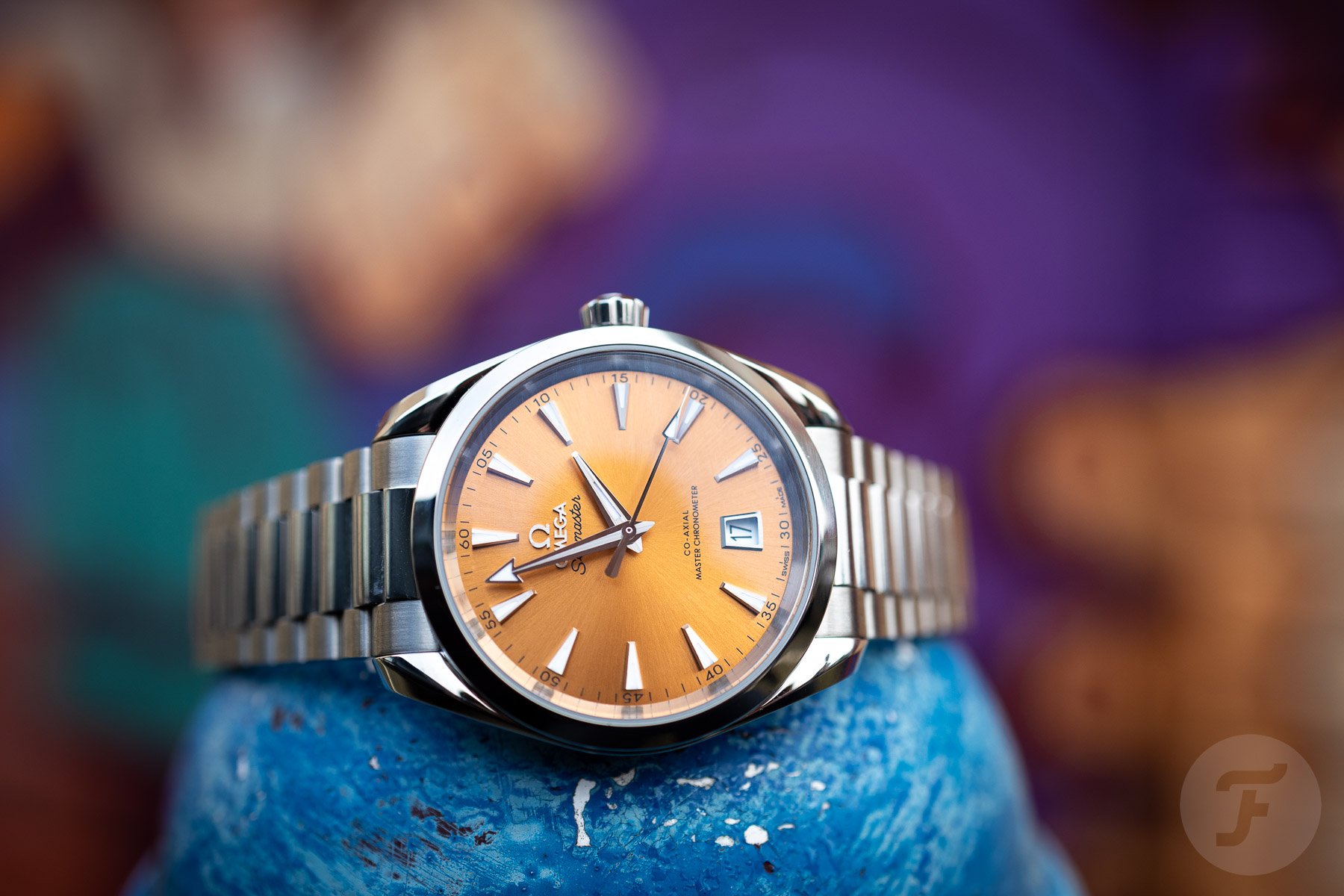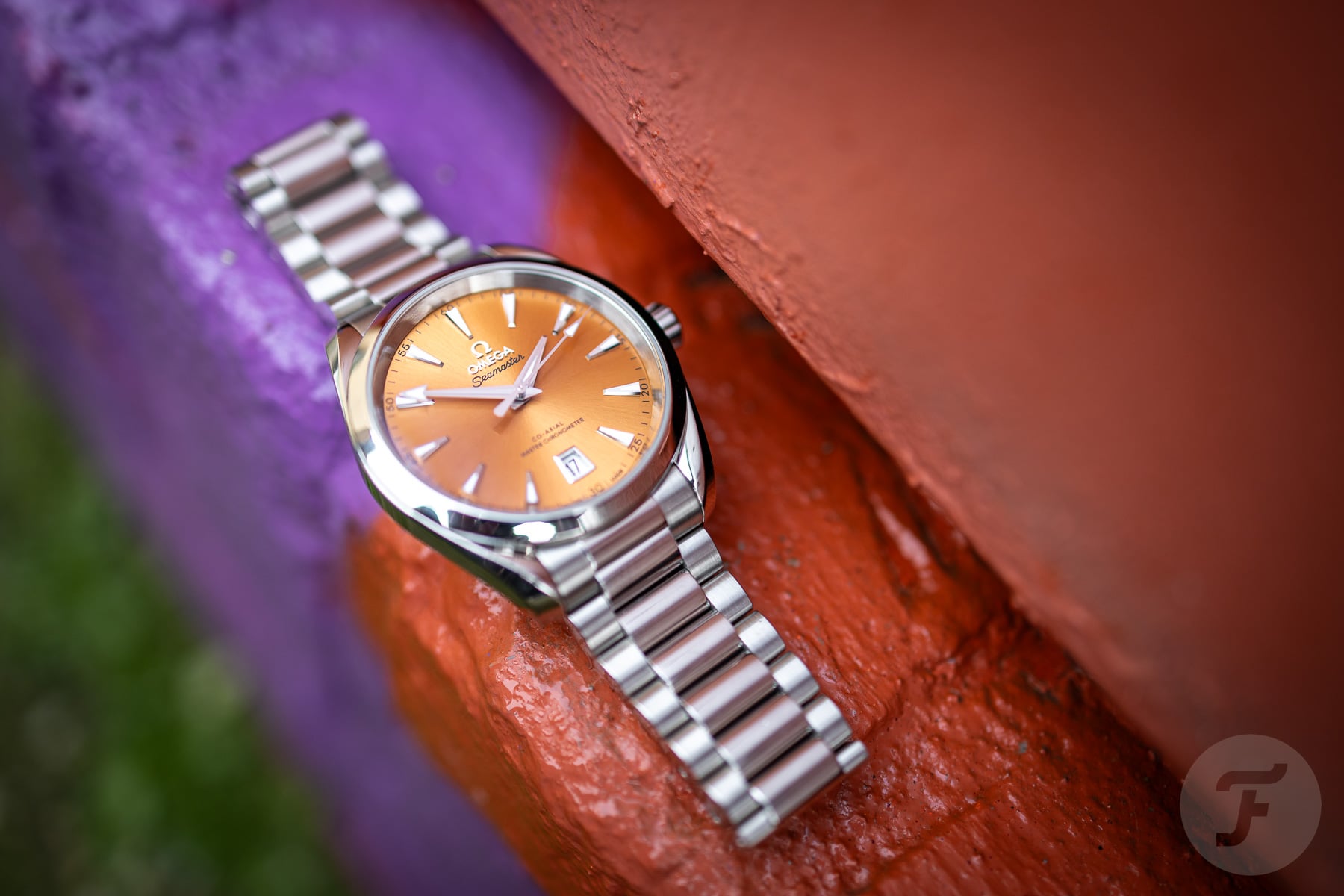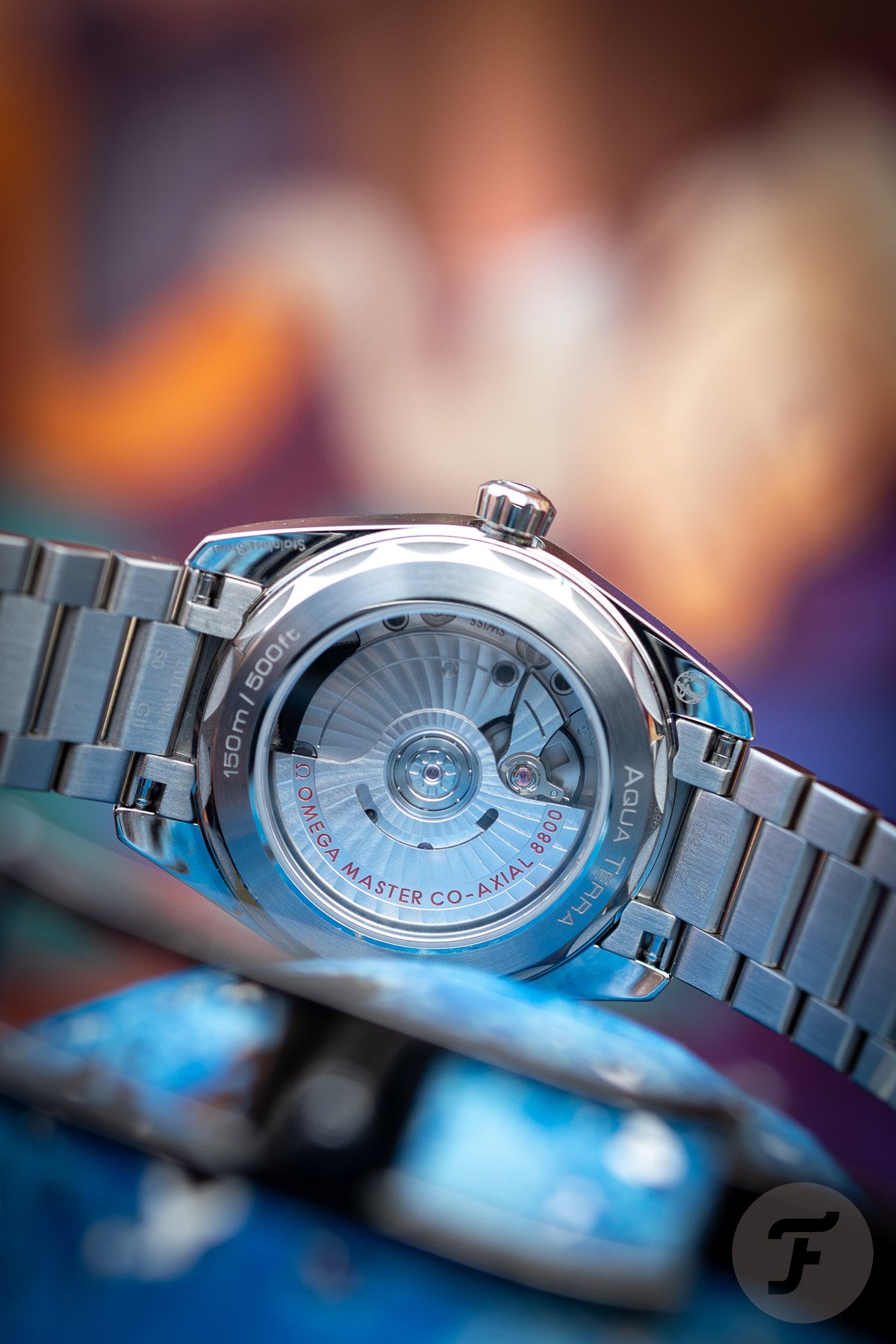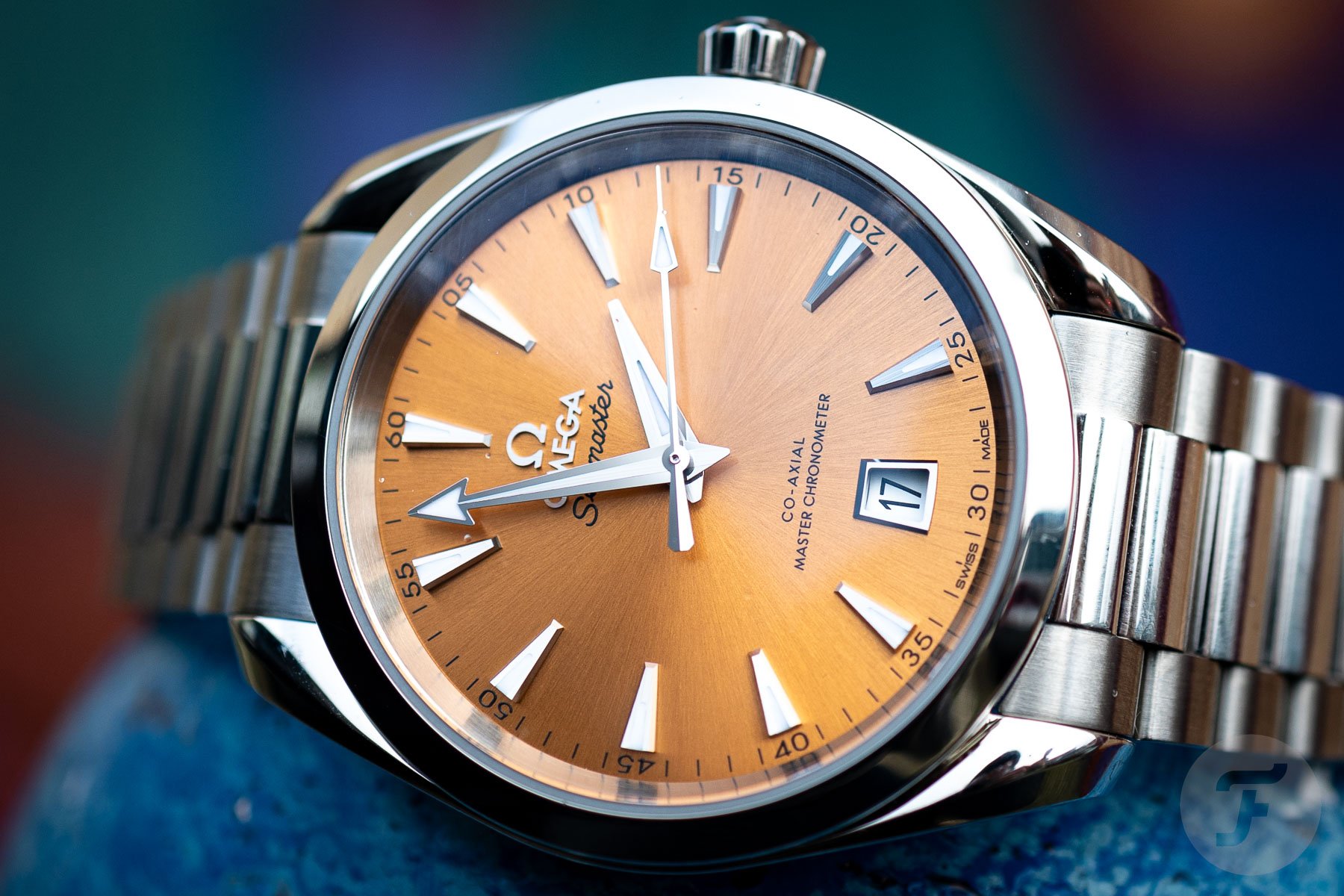Getting A Taste Of The Omega Seamaster Aqua Terra Shades Saffron This Monday Morning
Saffron will cost you over €10,000 per kilogram, so at least €10 per gram. Why is it so expensive? Well, to make one gram of saffron, you need 150 hand-picked crocus sativus flowers. The threads of the flowers are dried to serve not only as a seasoning and coloring agent in food but also as medicine. Saffron was likely first used by the Assyrians in the seventh century BCE. Now, how about the watch? The Omega Seamaster Aqua Terra Shades Saffron from Bienne, Switzerland, has a price of €7,300. This steel watch weighs 133 grams, meaning you pay slightly under €55 per gram. So, per gram, the Omega beats the spice when it comes to exclusivity. With that out of the way, let’s focus on the colorful watch with its rich and radiant dial.
The Assyrians and also the ancient Sumerians and Persians may have used saffron, but they were never so lucky to have tried the Omega Seamaster Aqua Terra Shades Saffron. And I have had the privilege to enjoy both the spice and the watch. A dish with saffron that I love is Moroccan chicken tagine with salty olives and sweet apricots. The dish uses ras el hanout, a vibrant spice mix that includes cumin, ginger, cinnamon, coriander, and allspice. And with a bit of saffron added, the dish gets a subtle, warm, dark, and earthy taste on top. The Seamaster Aqua Terra with a saffron-colored dial is remarkably similar; its glowing dial looks earthy and warm.
Getting a taste of the Omega Seamaster Aqua Terra Shades Saffron
There are a lot of “flavors” in the Seamaster Aqua Terra Shades collection. I got a taste of the Terracotta version, which actually made me think of smoked paprika. After taking a second look at the collection that we have at HQ, it wasn’t the Sandstone version with a dial that looks a lot like white pepper that spoke to me. Instead, it was the deep and dark yellow one. It was the only Aqua Terra named after a spice, the Saffron model.
On the wrist, its 38 × 44.9 × 12.3mm case settles in nicely and comfortably. The relatively modest size and balanced proportions are visibly enlarged by the case’s polished finish. With the nice and thin three-row bracelet with rounded links that are both polished and brushed and a butterfly clasp, the overall look of the watch is more dressy than sporty. That makes total sense when you look at the dial. This Seamaster doesn’t mind getting wet, but it’s not going to do hard manual labor in the depths of a dangerous sea.
Seamaster or Spicemaster?
A second hands-on with a member of the Shades range brings back the question of whether these colorful Seamasters belong in this famous collection with a strong instrumental history. I struggled with that question while wearing the Terracotta, but I don’t any longer. I do think this watch is a real Seamaster. Evolution is the reason why. Don’t forget that the Seamaster didn’t begin as a dive watch. Sure, the 1957 Seamaster 300 practically started life underwater. But even that watch and its dive-focused successors started to crawl out of the ocean and adapt to life in the beach club and on the boulevard. This put the emphasis on the Seamaster’s visual notability instead of its functional features. That’s why the modern Seamaster range has become more colorful and shinier than its ancestors. Reflective surfaces and intriguing colors are characteristics that are necessary to survive in the new habitat.
The saffron dial of the Seamaster Aqua Terra Shades, which we matched with graffiti art by Tobias Becker Hoff for the pictures, is both radiant and delicate. The brass dial is lacquered and has a sun-brushed finish that emanates from the center. Some people prefer the Aqua Terra watch without a date, but I’m not one of them. The nicely shaped and executed date window at 6 o’clock makes the dial more visually interesting. What I also like is the way that the aperture’s design fits nicely with the shape of the Super-LumiNova-filled applied indices.
Not your average spice
Inside the symmetrical case, which reveals a wave-edged design on the back, beats the Co-Axial Master Chronometer caliber 8800 with a 55-hour power reserve. The sapphire exhibition window allows a look at this automatic movement, which is certified by the Swiss Federal Institute of Metrology (METAS). The presence of such an accurate movement (0/+5 seconds per day) adds depth to the taste of the Aqua Terra Shades.
Just like the spice, the Saffron is a subtle watch. Yes, there’s color, but it’s also a shade that blends in with a lot of other hues. And when I say it “blends in,” I mean that it mixes well, but when you look at it, it will remind you that it’s not your average spice like salt or pepper. Instead, the warm and vibrant hue will tell you that you’re a watch fan with great taste — a veritable watch gourmand.
You can find the Seamaster Aqua Terra Shades model that suits your taste on the official Omega website.










